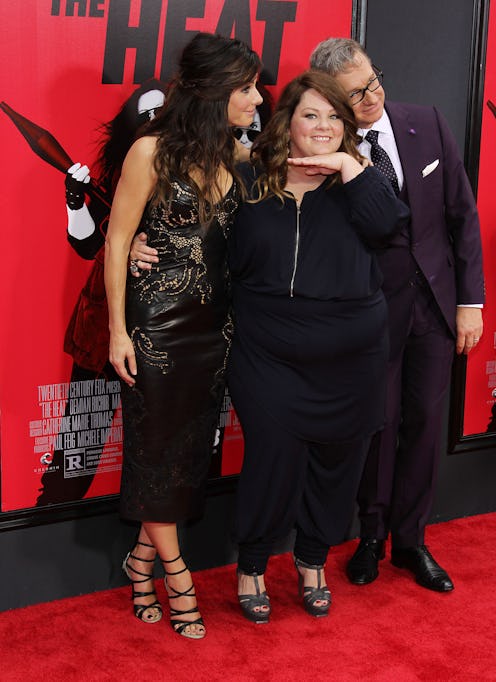Entertainment
Where Are Lady Directors for Lady Movies?
In today's news that everyone saw coming: Paul Feig is involved in yet another female-fronted comedy, after directing Bridesmaids, The Heat, and the upcoming Susan Cooper. Right now, it's just a pitch that Melissa Stack is set to write and Feig will produce for Fox — Feig developed the idea, but he's currently keeping it under wraps, although he said it will serve as a "vehicle for a group of ethnically diverse comic actresses."
I’m always looking for an excuse to gather a bunch of funny women together, and Melissa’s amazing take on this idea really made me laugh. I’m thrilled to be working with her and excited to really nail our Paso Doble on Dancing With The Stars.
All of this is really good news! And the fact that Feig already has his heart set on the cast being diverse before the script has even been written is a huge relief, especially seeing what a hard year it's been for female comedians of color (cough, SNL, cough). But it begs the questions: where are all the women directors for these female-fronted comedies?
The past year wasn't exactly overburdened with female-fronted comedies, but most of those that made it to theaters were directed by men: August: Osage County, Blue Jasmine, Frances Ha, Admission, The Heat. In comparison, the same kinds of titles directed by women (The To-Do List, The Lifeguard, Paradise) seem to be just a drop in a small puddle.
Sure, no one's asking if women are funny or not anymore, to the great relief of thinking people everywhere, and directors like Feig have lent a huge hand in settling that debate, supporting women writers and actresses who are clearly hilarious by anyone's standards. But the point of that debate was not to determine if women's genitals somehow made them more or less funny. The point was to get women hired. The point was to make Hollywood executives realize that yes, people will go to a movie that women are involved in. But it seems that the message that somehow got across to these executives is "movies that Paul Feig makes will make money."
This might still be beneficial for everyone involved — because yes, Feig's movies do make money, and they're great films to watch, and he seems more than happy to be a champion for funny women. But it's also important to give any oppressed faction of society ample opportunity to speak for themselves, to represent their views on screen. When you don't, you're gambling with perspectives. Because sometimes we get wonderful, understanding directors like Paul Feig who realize that women are humans. We get Juno and Baby Mama and Bridesmaids. But other times, we get hacky stereotypes from people who have seemingly never met a woman in real life. That's when we get movies like What to Expect When You're Expecting and Sex and the City 2. And that's when audiences start asking why Hollywood sent a man to do a woman's job.
